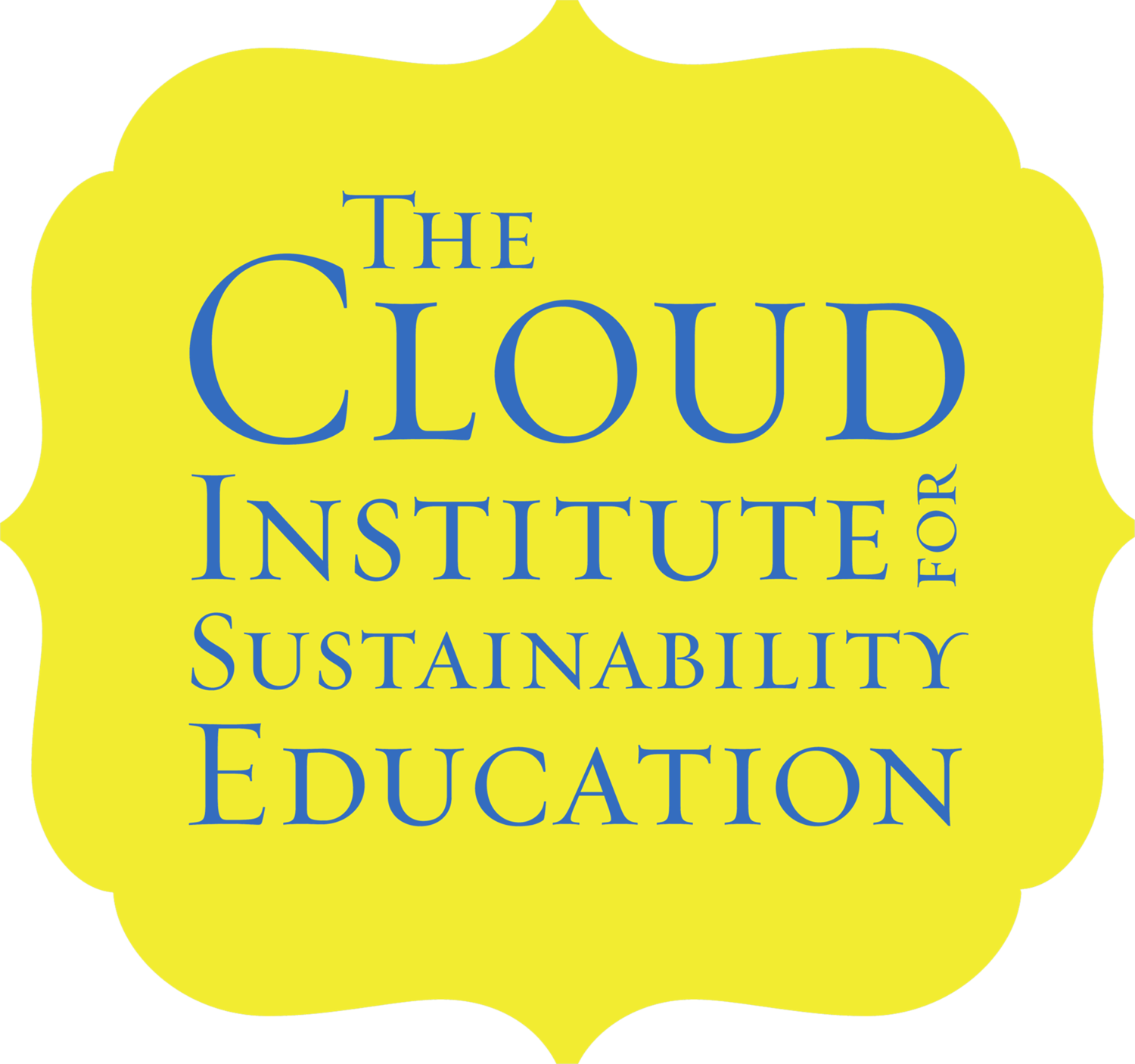Getting the word out! Creating Awareness for A Sustainable future!
/By Lisa R. Hayeck
Cranford High School
Science Teacher
After attending NJ Learns Training at the Cloud Institute last year, I was ecstatic to return to Cranford and begin inspiring students, staff and community members to educate for sustainability. My number one goal was to use what I had learned and share my experiences; I didn’t want to pass up this great opportunity for change. Luckily I was fortunate enough to be able to incorporate all three groups - students, staff and community members - into the NJ Learns practicum I needed to complete for my certification, which helped me to achieve my goal.
My first experience was with my high school science classes. I introduced a ninety minute session where I included: an introduction to sustainability; the fish game (always a hit!); the fish game debrief; mental models; and finally, a few pieces of inspiration. During one of these sessions, I was joined by Mary Sudiak, a community member, Cranford Board of Education member, and fellow NJ Learns trainee, to co facilitate a session. This was such an incredible way to help strengthen school/community bonds!
The goal of each session was to get an idea of what my students, our youth in general, are thinking - because, as a result of NJ Learns, I now know that thinking drives behavior and behavior gives us the results we see around us! Getting my students to explore their thinking was the most upstream I could go in terms of helping them to identify the importance of sustainability.
At the beginning of each session the students, as a class, created a shared understanding of what sustainability and educating for sustainability means to them. The students’ understanding of unsustainable practices was impressive and allowed for good discussions on creating healthy systems and understanding the limitations of those systems. The students then played the fish game, showing many of the unsustainable mental models that would soon be revealed to them in the debrief.
After the debrief, all of the groups were able to find a way to work together through their frustrations and create sustainable fishing practices. I then showed students various video clips to inspire them to help create a sustainable environment. Currently, my students are researching subjects they are interested in and will be completing projects on sustainable practices that will hopefully be showcased in the Cranford School District Science Expo in April.
While completing the practicum sessions with my high school students, I was given the opportunity to hold a two hour professional development session on Education for Sustainability as in-service day option for our district staff. This session included 20 adults ranging from teachers of varying content areas as well as district and building administrators. In this session, I presented many of the same materials and tools that I had with my high school students. The information was positively received by the group and the session concluded with a wonderful dialog of what changes we can make in our schools. The group seemed very passionate and excited to see this initiative move forward. I provided teachers with various resources to use with their classes and received helpful feedback to apply as we move forward in creating a more sustainable school and community.
So what are the results of the first training sessions I provided in Cranford on educating for sustainability?
Well, I am happy to say that the students, staff and community of Cranford have been very receptive. The science department has already begun affecting change by developing an action plan that will generate greater awareness of sustainable practices in the school and community. First we are tightening our belts on our recycling practices throughout the school – creating more recycling bins with better labeling in hopes of having a more uniform recycling system throughout the building. Composting will also begin in the spring along with a reusable water bottle sale to discourage the use of plastic water bottles. This is just the beginning!
Change is also being seen outside the science department. Awareness of sustainability has already begun spreading throughout Cranford High School. Recently, I was pleasantly surprised by an English teacher who was so inspired after attending the two hour professional development session that she had begun educating for sustainability with her sophomore English classes. This year, she is having her sophomore students focus on sustainability for their research projects. Education for Sustainability is a topic that can be incorporated into any class. I witness this firsthand as I find new ways on a daily basis to incorporate it into my own classes. My students have really begun to shift their paradigms of thinking so much so that I often find my students applying sustainability to topics like the rock cycle or plate tectonics. As a teacher, it is a great feeling to see the students really take ownership of their learning and synthesizing the information.
All of theses practices, no matter how small, will help us move toward a sustainable future together. I think the students, staff and community feel inspired to continue to make changes toward a sustainable future. The changes have already begun and the link between school and community evolves and strengthens. I hope to see our youth provided with an opportunity to continue to learn self-empowerment so they can make good choices and become stakeholders in their own sustainable future.
